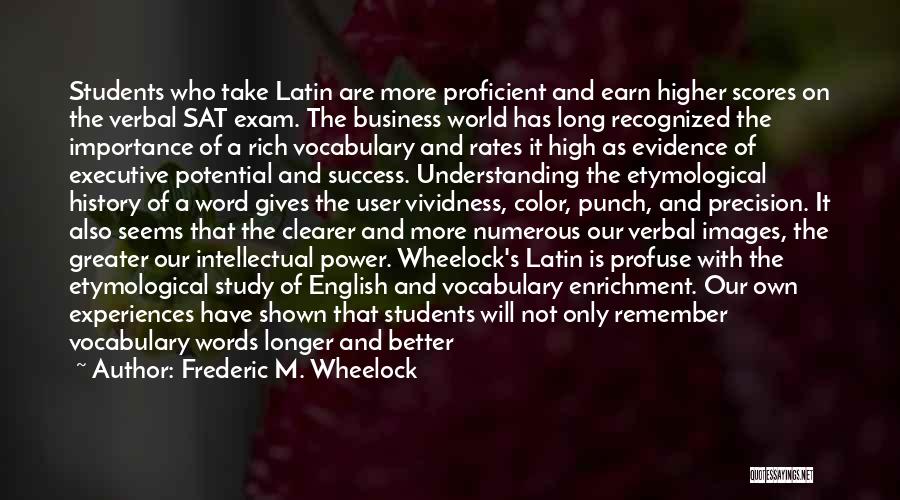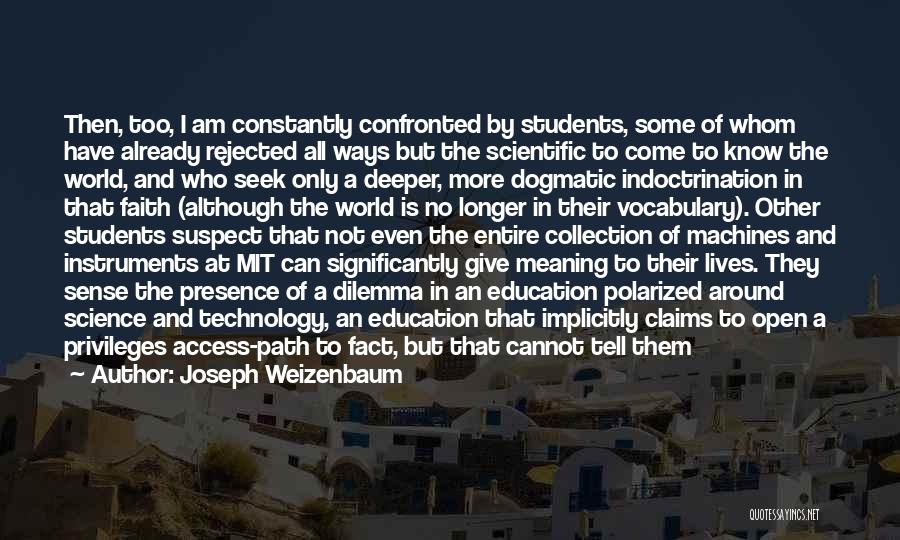Vocabulary Importance Quotes & Sayings
Enjoy reading and share 3 famous quotes about Vocabulary Importance with everyone.
Top Vocabulary Importance Quotes

When I lie on the beach there naked, which I do sometimes, and I feel the wind coming over me and I see the stars up above and I am looking into this very deep, indescribable night, it is something that escapes my vocabulary to describe. Then I think: 'God, I have no importance. Whatever I do or don't do, or what anybody does, is not more important than the grains of sand that I am lying on, or the coconut that I am using for my pillow.' So I really don't think in the long sense. — Marlon Brando

Students who take Latin are more proficient and earn higher scores on the verbal SAT exam. The business world has long recognized the importance of a rich vocabulary and rates it high as evidence of executive potential and success. Understanding the etymological history of a word gives the user vividness, color, punch, and precision. It also seems that the clearer and more numerous our verbal images, the greater our intellectual power. Wheelock's Latin is profuse with the etymological study of English and vocabulary enrichment. Our own experiences have shown that students will not only remember vocabulary words longer and better when they understand their etymologies, but also will use them with a sharper sense of meaning and nuance. — Frederic M. Wheelock

Then, too, I am constantly confronted by students, some of whom have already rejected all ways but the scientific to come to know the world, and who seek only a deeper, more dogmatic indoctrination in that faith (although the world is no longer in their vocabulary). Other students suspect that not even the entire collection of machines and instruments at MIT can significantly give meaning to their lives. They sense the presence of a dilemma in an education polarized around science and technology, an education that implicitly claims to open a privileges access-path to fact, but that cannot tell them how to decide what to count as fact. Even while they recognize the genuine importance of learning their craft, they rebel at working on projects that appear to address themselves neither to answering interesting questions of fact nor to solving problems in theory. — Joseph Weizenbaum





